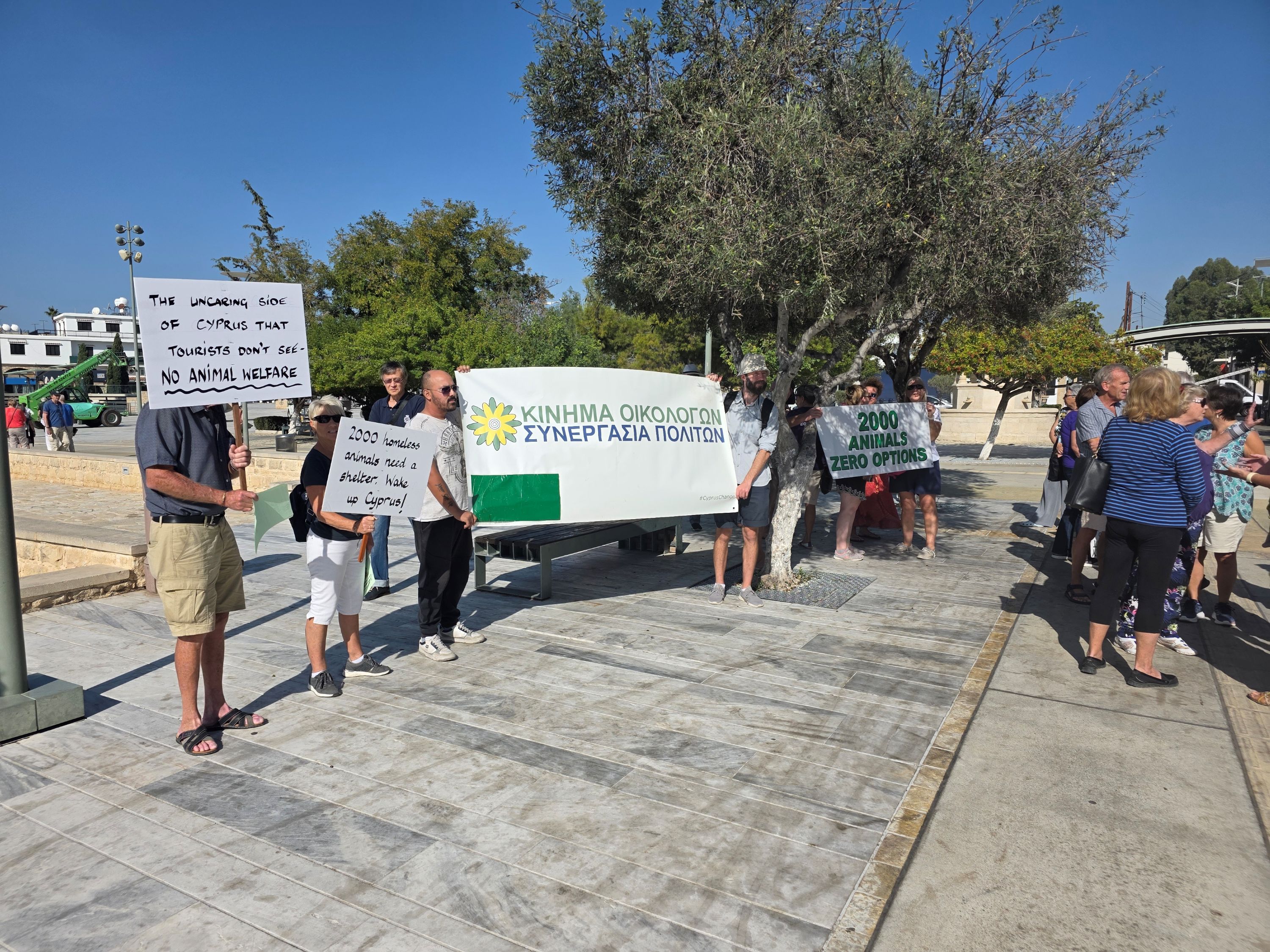An emergency meeting held by the Yeroskipou municipality on Thursday underscored the escalating crisis at the Paphiakos animal shelter in Paphos, where nearly 2,000 animals now face possible eviction.
With landowners demanding the return of their property, local authorities, state agencies, and animal-welfare organisations convened urgently to seek a path forward.
Yeroskipou mayor Nikos Palios said the municipality will prepare an action plan for the safe management and relocation of animals, stressing that implementation will require significant state funding.
“The municipality of Yeroskipou is ready to care for the welfare of animals,” he said, expressing hope for cooperation across ministries, agencies, and private stakeholders.
He noted, however, that the shelter’s management did not attend the meeting, calling their absence “surprising” given the national scale of the crisis.
“This is not just a municipal problem, it affects the entire state,” he said, reiterating that euthanasia is not being considered.
The Paphiakos shelter, operating for nearly four decades on privately owned land, has long housed a wide array of animals.
According to Paphos district veterinary officer Olga Perikenti, the complex recently accommodated around 550 dogs, 150 cats, and dozens of horses, donkeys, goats, and rabbits.
Some welfare groups place the number closer to 856 animals, while volunteers warn that, when including temporary cases and unregistered intakes, nearly 2,000 animals could ultimately be affected.
The crisis intensified after landowners, frustrated by longstanding zoning and permit violations in what has become a valuable tourist area, moved to reclaim their property.
This triggered a legal process that could soon force the removal of all animals from the site. Yeroskipou’s legal adviser, Giannakis Papazacharia, warned that a 2020 court decree ordering their removal remains in force, with potentially severe penalties for non-compliance.
Outside the meeting, volunteers gathered at the municipal hall, mirroring demonstrations earlier in the week outside Paphos district court.
The shelter’s manager, Irene Diamantopoulou, voiced deep concern that without swift intervention many animals – especially those requiring medical certificates before transfer – may face euthanasia.
“These animals are not numbers, they are lives we’ve promised to protect,” she said. “We’ve built a strong bond with them. Seeing them taken away without a clear welfare plan is heartbreaking.”
Animal party leader Kyriakos Kyriakou pledged to seek sponsors to adopt or rehouse animals in other shelters across Cyprus.
He stressed that the shelter’s only legal failing is the absence of a planning permit and renewed calls for a regional shelter funded by multiple municipalities.
He added that the state ultimately bears responsibility for ensuring the shelter’s future. “Through coordinated efforts, we can avoid re-victimising innocent animals who are here because of human irresponsibility,” he said.
Environmental protection commissioner Antonia Theodosiou said she has been in constant communication with the municipality, urging authorities to prioritise animal welfare over bureaucratic delays.
She acknowledged that while all parties share responsibility for the deterioration of the situation, the immediate focus must be on securing suitable temporary and long-term accommodation.
A follow-up meeting is scheduled for next week, bringing together the municipality, the commissioner’s office, and animal party representatives to examine relocation options.
However, with shelters across the island already at full capacity and farms themselves especially limited, time is of the essence.
For volunteers, the uncertainty is devastating. “If we could, every one of us would take the animals home,” Diamantopoulou said. “All we ask is for the government to stand by us, because these animals have nowhere else to go.”






Click here to change your cookie preferences